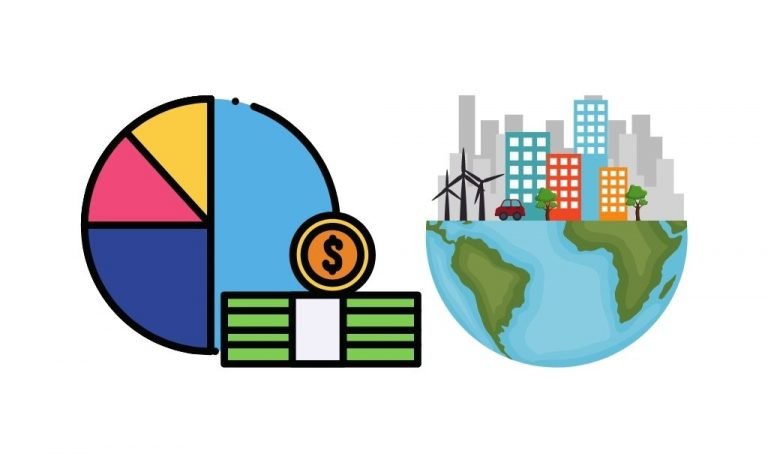Financing Sustainable Growth
by Vincent McCarthy, CFA

Key Takeaways
- The European Court of Auditors has examined the European Commission’s sustainable finance plan – to direct investment towards sustainable business activity – and ‘concluded that more consistent EU action is needed’.
- “While the Commission rightly focused on increasing transparency in the market, there were no accompanying measures to address the cost of unsustainable economic activities and many actions have been delayed.”
- The EU authorities must lead by example and apply ESG to their own budgets and create more sustainable investment projects. “The Commission needs to apply consistent criteria to determine the sustainability of EU budget investments and better target efforts to generate sustainable investment opportunities.”
Europe is considered to be one of the leaders in supporting the transition to a more sustainable economy, facilitated by a comprehensive sustainable finance strategy. On its official website the European Union affirms their commitment to supporting sustainable growth and their position at the forefront of this transition.
“The European Union strongly supports the transition to a low-carbon, more resource-efficient and sustainable economy and has been at the forefront of efforts to build a financial system that supports sustainable growth.”
More action needed
However, the European Court of Auditors (ECA), the Union’s external auditor, released a special report recently which looks at the actions taken so far by the European Union. The ECA have concluded that the EU is not doing enough to stimulate sustainable investment and that they need to apply sustainability criteria to the investments supported by its own budget.
“We conclude that more consistent EU action is needed to redirect private and public finance towards sustainable investments. While the Commission focused its actions on increasing transparency in the market, it has not accompanied those actions by measures to address the cost of unsustainable economic activities. In addition, the Commission needs to apply consistent criteria to determine the sustainability of the investments it supports from its budget and better target efforts to generate sustainable investment opportunities.”
Delays & further steps required
As financial market participants and advisors know all too well, we have seen increased regulation and requirements around sustainability in recent years. However, the ECA flagged the delays accompanying these regulatory measures and the fact that further steps will be required to make it practically applicable.
The delay in completing the classification for sustainable activities (EU Taxonomy) is an issue for the ECA. But even once complete, the ECA report questions the impact of a framework focused on classifying sustainable activities that fails to incorporate “the environmental and social costs of unsustainable activities”. In other words, the EU needs to be more focused on addressing unsustainable activities.
“As regards specific regulatory measures, we found that planned actions rightly focused on how to improve transparency – both on which investments are sustainable and on how the financial sector and companies report on sustainability. Many actions suffered delays and require further steps to become applicable. In particular, it has taken longer than planned to complete the common classification system for sustainable activities (the EU Taxonomy) that forms the basis for labelling financial products and standardising sustainability disclosures for companies. We consider that these measures will not be fully effective unless they are accompanied by sufficient measures to reflect the environmental and social costs of unsustainable activities.”
Unsustainable business is still too profitable
In the press release for the report, Eva Lindström, the Member of the European Court of Auditors responsible for the report made an important point that goes to the very heart of the sustainability challenge. “Unsustainable business is still too profitable. The Commission has done a lot to make this unsustainability transparent, but this underlying problem still needs to be addressed”. The reality is that if unsustainable business activities are permitted and are profitable, they will continue. So the regulator has a choice, outlaw the activity or impose taxes to make it less profitable.
The financial supports provided by the European Union are not reaching the areas that need support for climate action most. Climate adaption projects, which the private sector steers away from, are receiving little support from the EU’s public funds. The ECA also concludes that “the EU has not been sufficiently pro-active in supporting the development of a pipeline of sustainable projects”.
“As regards EU financial support, we found that the EIB has an important role to play in supporting sustainable investments and applying the EU Taxonomy. However, our analysis of the investment support provided by the European Fund for Strategic Investments showed that it provided less support for climate action in Central and Eastern Europe, where there is considerable need, than in other regions. In addition, we found little financial support to climate adaptation projects, which find it difficult to attract private finance. We also consider that the EU has not been sufficiently pro-active in supporting the development of a pipeline of sustainable projects and has not fully exploited the potential of National Energy and Climate Plans to identify sustainable investment opportunities.”
Inconsistent application of ESG for EU financing
The ECA has highlighted the inconsistencies with respect to the application of the “do no significant harm” principle. The lack of binding requirements on all activities receiving EU financing is also an issue that undermines the transition to a sustainable economy.
“We also found that there is no consistent and binding requirement on all activities receiving EU financing to apply the “do no significant harm” principle. In addition, there are no requirements in EU spending programmes, other than InvestEU, for assessing individual investments against social and environmental standards comparable to those used by the EIB. This means that insufficiently strict or differing criteria may be used to determine the environmental and social sustainability of the same activities funded by different EU programmes. Furthermore, many of the criteria used for assessing and tracking the EU budget’s contribution to climate objectives are not as strict and science-based as those developed for the EU Taxonomy.”
The ECA report provides a number of recommendations:
- complete the measures of the Action Plan and clarify compliance and audit arrangements;
- better contribute to sustainable finance by pricing greenhouse gas emissions;
- report on climate and environment related results of InvestEU;
- increase efforts to generate a sustainable project pipeline;
- apply the “do no significant harm principle” and the EU Taxonomy criteria consistently across the EU budget;
- monitor and report on the results of the Action plan and any future strategies.
Conclusion
On a positive note, from an accountability perspective, it is good that the European Court of Auditors have provided an impartial assessment of the progress made by the European Union in transitioning the European economy to a more sustainable economy. At the same time, the report provides a reminder that despite all the conferences, statements, reports, regulations, etc. Europe still has a lot to do. Plans are easy to make but it is the follow through that matters.
While the focus by authorities is on ‘greening finance’, as part of their plan to finance sustainable growth, there are major changes required at a policy level to transition to a sustainable economy.
The message from the ECA is clear. Governments need to better define sustainable activity with respect to the ‘Do no significant harm principle’, incorporate it into their own budget and also implement measures to make unsustainable business less profitable. Otherwise sustainable finance will not translate into a sustainable economy.
For countries, including Ireland, vying to be the domicile of choice for “sustainable finance” – effectively an administrator of global capital – an enlarged financial sector will add to the GDP of a country, but that doesn’t mean a more sustainable domestic economy. The priority has to be on setting the rules of the game to build an economy that genuinely prioritises sustainability at all levels. The ECA;s report and their recommendations must be heeded.
End
E-mail Insights@ESG.ie to subscribe to The ESG Factor Magazine.
Reference:
Special Report – Sustainable finance: More consistent EU action needed to redirect finance towards sustainable investment
